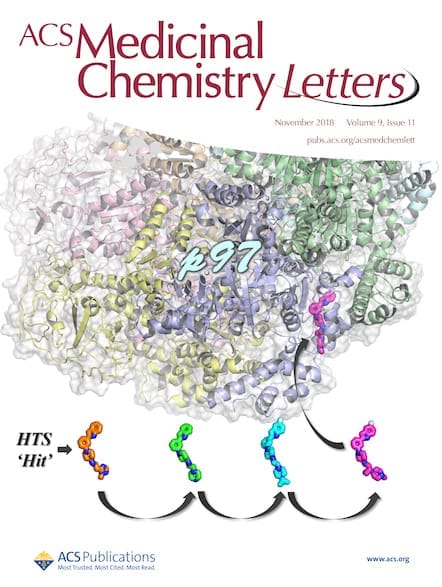It’s an exciting time to be in cancer research. Advances in both immunotherapy and chemotherapy research are revolutionizing treatment for many cancers and are improving outcomes for many patients. Medicinal chemists are using innovative strategies to improve chemotherapeutic agents in ways that reduce toxic side effects and overcome drug resistance. For example, chemists have refined […]

It’s an exciting time to be in cancer research. Advances in both immunotherapy and chemotherapy research are revolutionizing treatment for many cancers and are improving outcomes for many patients. Medicinal chemists are using innovative strategies to improve chemotherapeutic agents in ways that reduce toxic side effects and overcome drug resistance. For example, chemists have refined mechanisms to conjugate small molecule chemotherapeutics to tumor specific antibodies, allowing for targeted delivery of the drug to tumor cells. These antibody-drug conjugates selectively deliver toxic drugs to tumor cells thus reducing the potential for widespread toxicity.
Another important area of drug development for cancer research focuses on inducing protein degradation as a therapeutic strategy. Recent findings that drug-induced protein degradation could be employed as an effective approach to target cancer cells have been promising and compounds have progressed to clinical trials.
Journal of Medicinal Chemistry and ACS Medicinal Chemistry Letters are pioneers in publishing in these rapidly growing areas of cancer research:
- Journal of Medicinal Chemistry’s Drug Annotations present case studies of drugs in clinical trials with many notable advances in cancer drug discovery featured in these articles.
- ACS Medicinal Chemistry Letters is currently accepting submissions of manuscripts for a special issue on antibody-drug conjugates and bioconjugates for the treatment of cancer.
In honor of May being Cancer Research Awareness Month, check out some of the recent research appearing in Journal of Medicinal Chemistry and ACS Medicinal Chemistry Letters:
- Discovery of a First-in-Class, Potent, Selective, and Orally Bioavailable Inhibitor of the p97 AAA ATPase (CB-5083)
Med. Chem., 2015, 58 (24), pp 9480–9497
DOI: 10.1021/acs.jmedchem.5b01346 - Discovery of Clinical Development Candidate GDC-0084, a Brain Penetrant Inhibitor of PI3K and mTOR
ACS Med. Chem. Lett., 2016, 7 (4), pp 351–356
DOI: 10.1021/acsmedchemlett.6b00005 - MLN8054 and Alisertib (MLN8237): Discovery of Selective Oral Aurora A Inhibitors
ACS Med. Chem. Lett., 2015, 6 (6), pp 630–634
DOI: 10.1021/ml500409n - Ado-trastuzumab Emtansine (T-DM1): An Antibody–Drug Conjugate (ADC) for HER2-Positive Breast Cancer
Med. Chem., 2014, 57 (16), pp 6949–6964
DOI: 10.1021/jm500766w - Allosteric Indole Amide Inhibitors of p97: Identification of a Novel Probe of the Ubiquitin Pathway
ACS Med. Chem. Lett., 2016, 7 (2), pp 182–187
DOI: 10.1021/acsmedchemlett.5b00396
